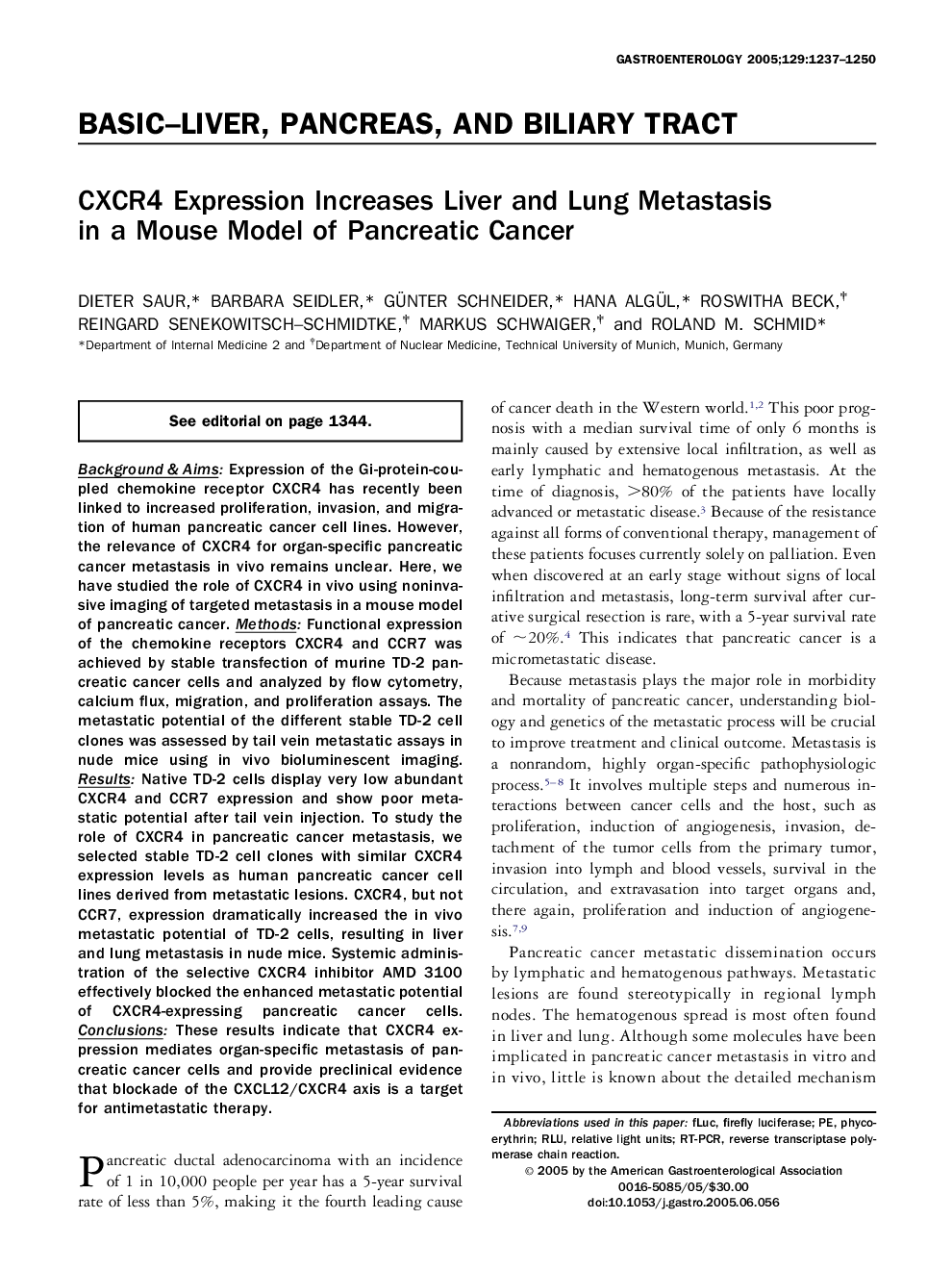| کد مقاله | کد نشریه | سال انتشار | مقاله انگلیسی | نسخه تمام متن |
|---|---|---|---|---|
| 9244004 | 1209898 | 2005 | 14 صفحه PDF | دانلود رایگان |
عنوان انگلیسی مقاله ISI
CXCR4 Expression Increases Liver and Lung Metastasis in a Mouse Model of Pancreatic Cancer
دانلود مقاله + سفارش ترجمه
دانلود مقاله ISI انگلیسی
رایگان برای ایرانیان
کلمات کلیدی
موضوعات مرتبط
علوم پزشکی و سلامت
پزشکی و دندانپزشکی
بیماریهای گوارشی
پیش نمایش صفحه اول مقاله

چکیده انگلیسی
Background & Aims: Expression of the Gi-protein-coupled chemokine receptor CXCR4 has recently been linked to increased proliferation, invasion, and migration of human pancreatic cancer cell lines. However, the relevance of CXCR4 for organ-specific pancreatic cancer metastasis in vivo remains unclear. Here, we have studied the role of CXCR4 in vivo using noninvasive imaging of targeted metastasis in a mouse model of pancreatic cancer. Methods: Functional expression of the chemokine receptors CXCR4 and CCR7 was achieved by stable transfection of murine TD-2 pancreatic cancer cells and analyzed by flow cytometry, calcium flux, migration, and proliferation assays. The metastatic potential of the different stable TD-2 cell clones was assessed by tail vein metastatic assays in nude mice using in vivo bioluminescent imaging. Results: Native TD-2 cells display very low abundant CXCR4 and CCR7 expression and show poor metastatic potential after tail vein injection. To study the role of CXCR4 in pancreatic cancer metastasis, we selected stable TD-2 cell clones with similar CXCR4 expression levels as human pancreatic cancer cell lines derived from metastatic lesions. CXCR4, but not CCR7, expression dramatically increased the in vivo metastatic potential of TD-2 cells, resulting in liver and lung metastasis in nude mice. Systemic administration of the selective CXCR4 inhibitor AMD 3100 effectively blocked the enhanced metastatic potential of CXCR4-expressing pancreatic cancer cells. Conclusions: These results indicate that CXCR4 expression mediates organ-specific metastasis of pancreatic cancer cells and provide preclinical evidence that blockade of the CXCL12/CXCR4 axis is a target for antimetastatic therapy.
ناشر
Database: Elsevier - ScienceDirect (ساینس دایرکت)
Journal: Gastroenterology - Volume 129, Issue 4, October 2005, Pages 1237-1250
Journal: Gastroenterology - Volume 129, Issue 4, October 2005, Pages 1237-1250
نویسندگان
Dieter Saur, Barbara Seidler, Günter Schneider, Hana Algül, Roswitha Beck, Reingard Senekowitsch-Schmidtke, Markus Schwaiger, Roland M. Schmid,